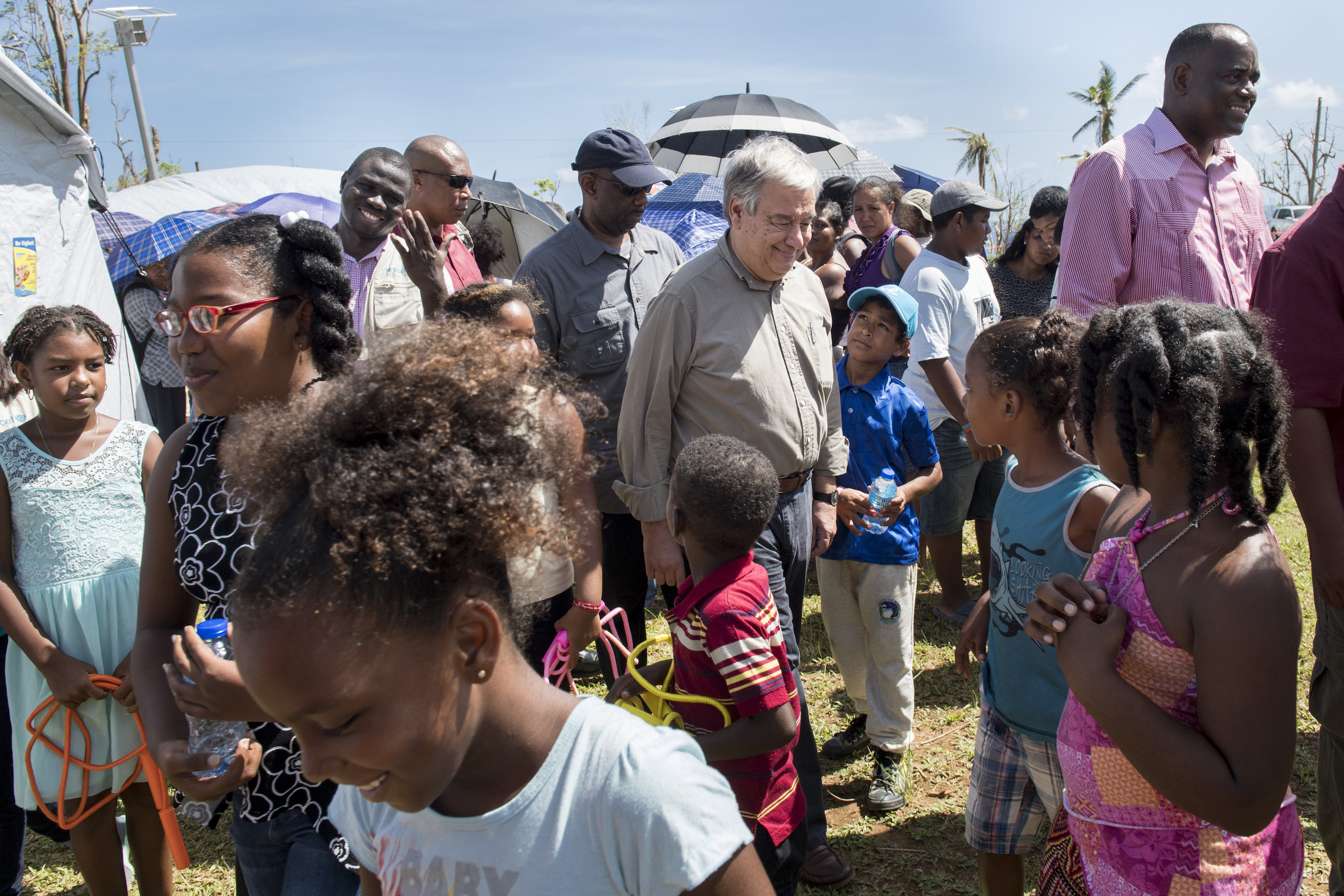
In Case You Missed It – Week of 9 October 2017

The In Case You Missed It Series highlights news articles from the United Nations that are relevant to the topics being simulated at AMUN 2017. This AMUN Accords post covers selected news from the week of 9 October.
The General Assembly Plenary will be discussing the Review of the United Nations peacebuilding architecture. On 15 October, the UN Stabilization Mission in Haiti (MINUSTAH) peacekeeping mission will come to a close. The head of the MINUSTAH mission, Sandra Honoré gave an optimistic briefing to the UNSC citing a reduction in conflict, armed gangs, and political violence, leaving the Haitian people with a secure, stable future after the peacekeepers withdraw. With the end of the mission in sight, the UN has released photos of the 13 year mission and its accomplishments.
The UN recognized Annah Chota, a peacekeeper at the United Nations Interim Security Force for Abyei (UNISFA), for her service and her efforts to promote gender equality. Chota was recognized as an International Female Police Peacekeeper, the first Zimbabwean to receive the award.
Less optimistic news came from two peacekeeping missions in Africa. Stéphane Dujarric, Spokesperson for the UN Mission in the Central African Republic (MINUSCA), reported that the mission had received an allegation of sexual abuse of a minor by UN peacekeepers. And, on Monday 9 October, two UN peacekeepers (“blue helmets”) were killed in an attack on the UN Organization Stabilization Mission in the Democratic Republic of the Congo (MONUSCO). An investigation into the attack is ongoing.
The General Assembly Second Committee will be discussing Sustainable Development: Disaster Risk Reduction. A new report highlighted that significant work remains to meet disaster risk reduction goals. Robert Glasser, the Special Representative of the UNSG for Disaster Risk Reduction, has remarked that insufficient investment in disaster risk reduction has resulted in rapidly rising disaster-related costs, noting that in the last two decades 2.5 trillion dollars had been lost to disasters. Mr. Glasser also spoke at length to UN News about disaster management and its ties to climate change.
The UN Emergency Response Fund reached its funding goal of 450 million dollars, but it is still underfunded for the current states of disaster and crisis worldwide. The fund supplied monetary aid after Hurricanes Irma and Maria, helped famine stricken countries in Africa, and provided funds for refugees fleeing Myanmar.
The General Assembly Third Committee will be discussing The human rights to safe drinking water and sanitation. The United Nations Children’s Fund (UNICEF) teaming with the Ministry of Disaster Management and Relief of Bangladesh, is working to quickly construct 10,000 latrines to provide safe, sanitary facilities to more than 250,000 Rohingya refugees who have fled conflict and persecution in Myanmar.
UNSG António Guterres said that the UN must address regional conflict, one of the root causes of famine. Ongoing conflicts in Nigeria and Yemen are making it difficult to get food and water to people affected by famine.
The World Summit on the Information Society +10 will discuss Human rights in the Information Society. At a United Nations event discussing the promise and pitfalls of technology and artificial intelligence, UN Deputy Secretary-General Amina Mohammed had a conversation with a robot. Mohammed warned that technological progress must be managed well and its benefits should not make existing inequalities worse.
The Economic and Social Commission for Asia and the Pacific (ESCAP) is discussing Towards a sustainable, inclusive and resilient urban future for Asia and the Pacific. The Executive Secretary of ESCAP, Shamshad Akhtar, delivered remarks on the Asia-Pacific Disaster Report 2017, detailing that disaster risk is far outpacing resilience in the Asia Pacific region.
The Contemporary Security Council approved a UN Action Plan to get a new political process started in Libya under the Libyan Political Agreement (LPA) framework on 2015. Zeid Ra’ad Al Hussein, the UN High Commissioner for Human Rights, also outlined the need for addressing the human rights challenges in Libya. Special Envoy of the UN to Yemen, Ismail Ould Cheikh Ahmed, also briefed the UNSC on the situation in Yemen and a rapidly vanishing path to peace in the state. The UNSC is also likely paying attention to the situation in Cambodia, where the government’s dissolution of its opposition party is threatening democracy in the state.
Other UN News of note this week:
- Check out video interviews from participants at the high-level week of the UN General Assembly as they discuss key issues before the UN such as LGBTI rights, sustainable development and refugees.
- UNSG António Guterres, in his address on the World Day Against the Death Penalty, remarked that the “Death Penalty has no place in the 21st Century.”
- The International Labour Organization has announced that global unemployment has passed 200 million in 2017.
- The United States has signaled its intent to withdraw from the UN Educational, Scientific and Cultural Organization and become a permanent observer. UNESCO Director-General Irina Bokova gave remarks about a “loss for multilateralism.”
- Take a look at photos from the International Day of the Girl Child.
Check back in to the AMUN Accords in the future as we keep you up-to-date on UN News that affects the simulations at the AMUN 2017 Conference. If we missed some news of note, let us know on our Facebook page or Twitter feed and share the news with other upcoming attendees to the Conference.
Keep Up With The Accords
More to read
The AMUN Accords is a premier resource for fact-based Model United Nations simulations. We are always looking for new contributors. Want to write for the AMUN Accords? Check out out the submission guidelines and then get in touch!




